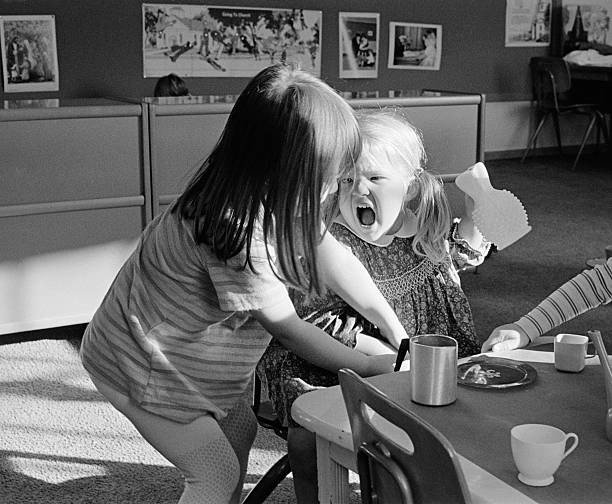10 Things That Happen to Adults Who Got Yelled At A Lot During Childhood

Source: http://www.msn.com
Growing up under constant yelling can have a deep and lasting impact on a child’s emotional and psychological development. While many parents may not realize the consequences of raising their voices regularly, the long-term effects on their children are undeniable. For adults who were frequently yelled at as kids, the consequences often go beyond childhood trauma and extend into their adult relationships, self-esteem, and overall mental health. If you’ve ever wondered how that constant tension in your home might have shaped the person you’ve become, here are 10 things that happen to adults who were constantly yelled at in their childhood.
1. Chronic Anxiety
Adults who were frequently yelled at as children often carry the weight of anxiety throughout their lives. As a child, they might have learned to be on edge, anticipating outbursts or feeling uncertain about their environment. This heightened state of alertness can easily turn into chronic anxiety as an adult, causing constant worry, fear of conflict, and an overwhelming need to control situations in order to avoid any form of confrontation.
2. Difficulty Trusting Others
When you grow up in a household where yelling is common, it becomes difficult to trust that others will be calm and supportive. The emotional chaos instilled by yelling can cause a person to doubt the intentions of others. Even as an adult, this mistrust can lead to challenges in forming deep, meaningful relationships with friends, and family.
3. Low Self-Esteem
Being yelled at frequently as a child can make a person feel like they’re never good enough. The constant criticism and emotional turmoil can chip away at a child’s self-worth, leading them to grow up believing they are unworthy of love and respect. As an adult, this manifests as low self-esteem, where even small mistakes feel like personal failures.
4. Difficulty Expressing Emotions
Adults who were yelled at as children often struggle to express their emotions effectively. In a household dominated by yelling, they might have learned to suppress their feelings to avoid triggering further outbursts. This emotional repression can continue into adulthood, making it difficult to communicate their needs or vulnerabilities to others.
5. Conflict Avoidance
Growing up in a household where yelling was frequent can create a pattern of conflict avoidance in adulthood. As children, they might have learned that confrontation leads to negative consequences, so they avoid any type of disagreement to keep the peace. This tendency can result in passive-aggressive behaviors, stress, and dissatisfaction in relationships.
6. Increased Risk of Depression
The emotional scars of being yelled at as a child can lead to a higher likelihood of developing depression later in life. The constant barrage of negative emotions and the lack of emotional support can foster feelings of hopelessness and sadness that persist well into adulthood.
7. Perfectionism
Many adults who grew up with frequent yelling become perfectionists, constantly striving to avoid the mistakes that triggered their parents’ anger. This obsessive desire to be perfect can be driven by the fear of being reprimanded or scolded again. This perfectionism can lead to burnout, feelings of inadequacy, and a never-ending cycle of self-criticism.
8. Overcompensation for Approval
To cope with the emotional turbulence caused by yelling, many children learn to overcompensate by seeking constant approval and validation from others. As adults, this need for external validation can become overwhelming, leading them to put others’ needs before their own and ignore their personal boundaries just to feel accepted.
9. Emotional Overreaction
Adults who were yelled at a lot as children can develop a heightened sensitivity to loud voices or emotional outbursts. When they encounter conflict or confrontational situations, their emotional reactions might be overly intense. This could be because they are reliving the trauma of childhood, triggering a defensive and exaggerated response.
10. Difficulty Coping with Stress
The stressful environment created by constant yelling can leave lasting effects on how someone handles pressure in adulthood. Adults who grew up with yelling might struggle to manage stress effectively, feeling overwhelmed or unable to think clearly during challenging times. This can affect their job performance, relationships, and overall well-being.
Conclusion
While it’s easy to overlook the long-term effects of growing up in a house where yelling is common, these 10 signs reveal just how deeply this experience can shape an individual. If you see any of these patterns in your own life, it’s important to recognize that healing is possible. By seeking therapy, practicing self-compassion, and learning new ways to manage emotions, those who were frequently yelled at as children can break free from the negative cycles and build healthier, more fulfilling adult lives.
Read more of the story here: https://childreninfobank.com/safebank/10-things-that-happen-to-adults-who-got-yelled-at-a-lot-during-childhood-2/
Image Source: http://www.msn.com





